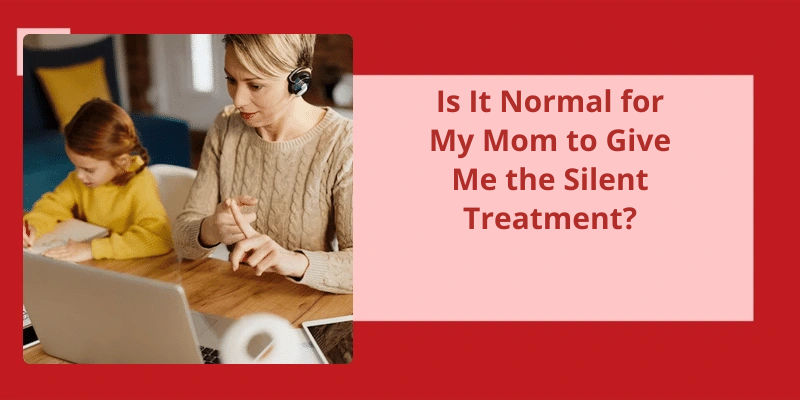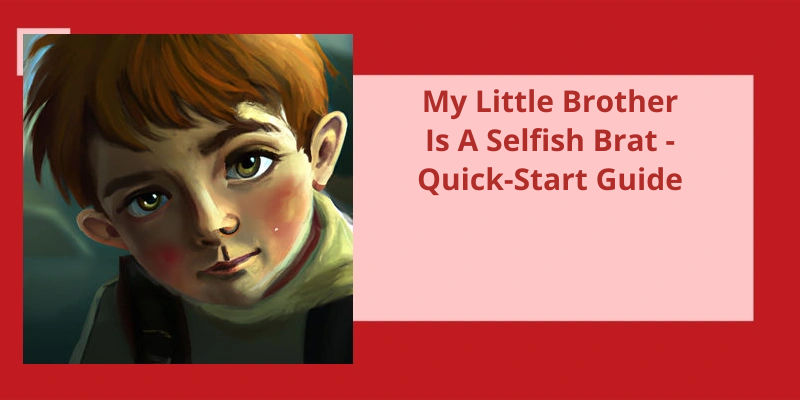However, when it comes to parent-child relationships, the silent treatment can be a source of anxiety and confusion for the child. Children rely heavily on their parents for emotional support and guidance, and when a parent suddenly withdraws from communication without any apparent reason, it can send mixed messages to the child. On the one hand, the child may feel that they’ve done something wrong or said something offensive, and on the other hand, they may feel that their parent is being unfair or unreasonable. This can lead to feelings of guilt, shame, and inadequacy, which can have a negative impact on the child's development and self-esteem. So, is it normal for a mom to give her child the silent treatment? The answer is complicated, and depends on a variety of factors, including the parent's communication style, the child's age and personality, and the dynamics of the relationship.
Why Does My Mom Do the Silent Treatment?
They want their children to obey them without question and feel powerful over them. When the child does something that displeases the narcissist, they’ll use the silent treatment to punish them. This tactic is meant to make the child feel guilty and anxious, forcing them to apologize and vow never to repeat the offense.
On the other hand, an emotionally immature parent may use the silent treatment as a way to avoid confrontation. They may find it difficult to express their feelings or communicate effectively, so they resort to the silent treatment as a means of avoiding conflict. This can create a toxic environment where the child feels neglected, rejected, and unsupported.
If you’re a victim of the silent treatment, it’s important to understand that this behavior isn’t your fault. It’s a form of emotional abuse, and you deserve to be treated with respect and kindness. It may be helpful to seek therapy where you can explore your feelings and learn healthy coping strategies. Additionally, setting boundaries with the parent who’s giving you the silent treatment may be necessary to ensure your own emotional well-being.
The Effects of the Silent Treatment on Mental Health and Well-Being of Children.
- Creates feelings of isolation and rejection
- Can lead to depression and anxiety
- May cause low self-esteem and negative self-image
- Can lead to difficulty in forming healthy relationships
- May contribute to behavioral issues such as aggression or withdrawal
It’s clear that the silent treatment can be harmful and controlling. But what exactly makes it so damaging? And how can you tell if you’re being subjected to it? In this article, we’ll dive deeper into the topic to shed some light on this often-overlooked form of abuse.
Is the Silent Treatment Controlling?
At it’s core, the silent treatment is a tactic used to manipulate and control another person. By ignoring or withholding communication, the person giving the silent treatment is exerting power over the person who’s left feeling isolated and powerless. This behavior can be particularly damaging in close relationships like romantic partnerships or family relationships where the silent treatment can feel like a rejection of love and affection.
It’s important to recognize that the silent treatment isn’t a healthy way to address conflict or express dissatisfaction. In fact, it can be a sign of deeper issues in a relationship, such as communication breakdown or a lack of emotional maturity. Instead of using the silent treatment as a way to punish or control your partner, it’s important to work on developing healthy communication skills and seeking out support to address any underlying issues.
For the person on the receiving end of the silent treatment, it can be a painful and confusing experience. It’s important to recognize that this behavior isn’t your fault and to seek out support from friends, family, or a therapist who can help you navigate the situation. It’s also important to set boundaries with the person giving the silent treatment and to communicate your feelings assertively and directly. Remember that you deserve to be treated with respect and kindness in your relationships.
Conclusion
It can lead to feelings of anxiety, worthlessness, and isolation which can have a negative impact on both personal and professional relationships. Furthermore, it’s important to recognize that the silent treatment isn’t a healthy way of resolving conflicts. It can create a culture of avoidance and prevent the parties involved from addressing the root of the issue.






